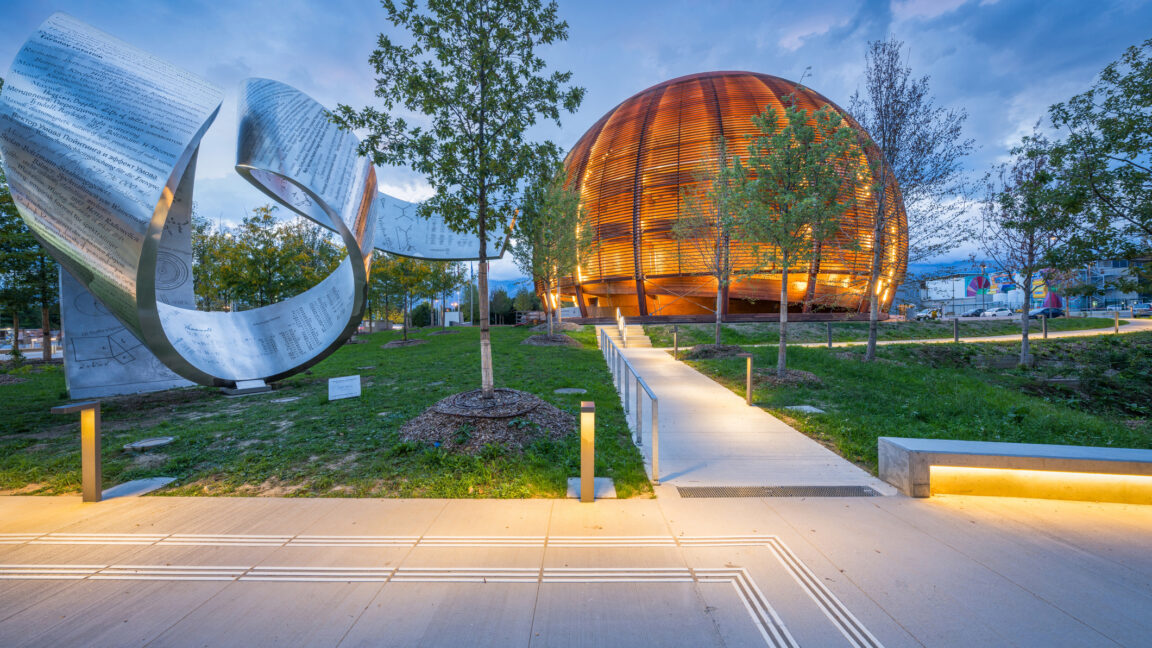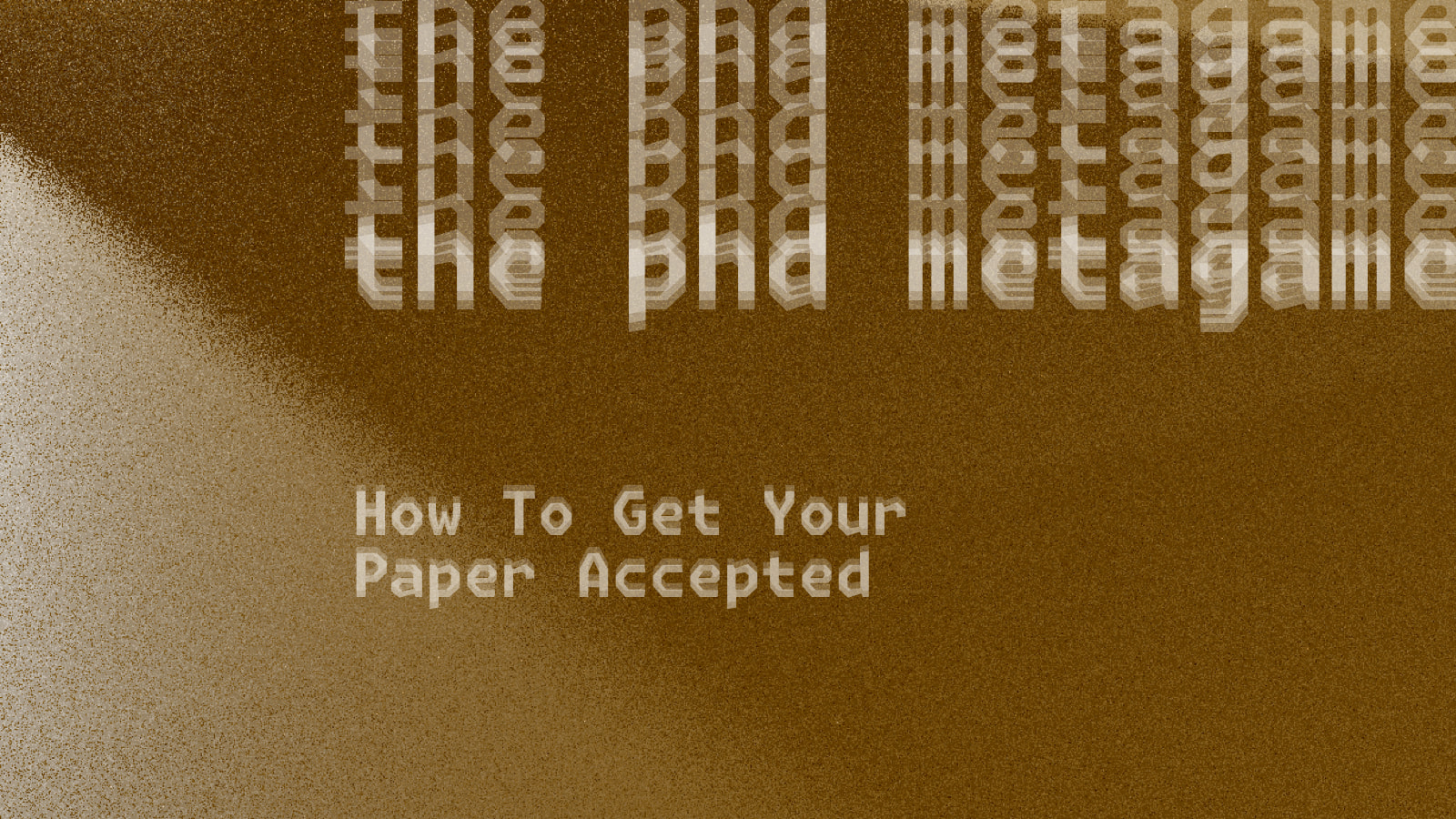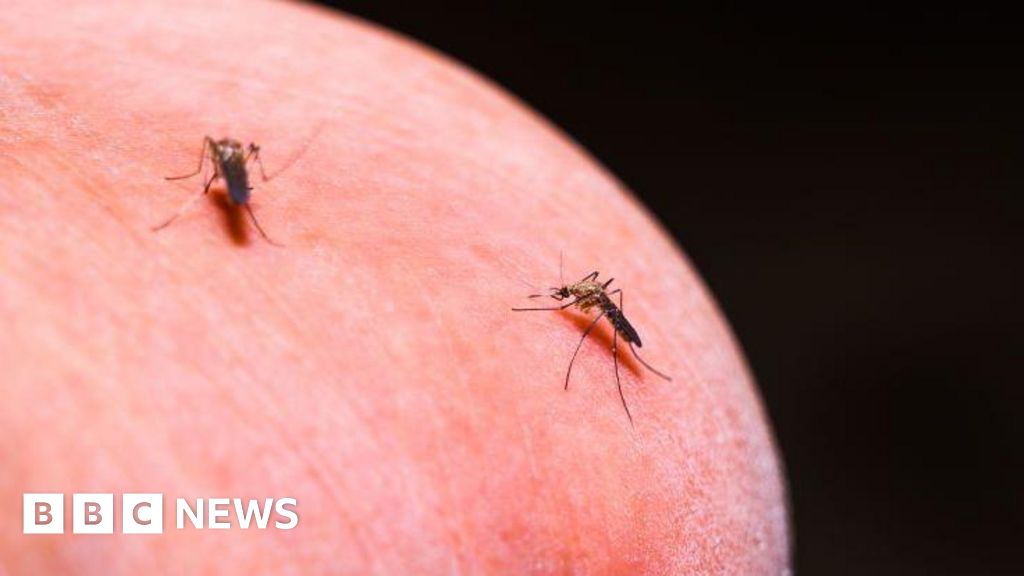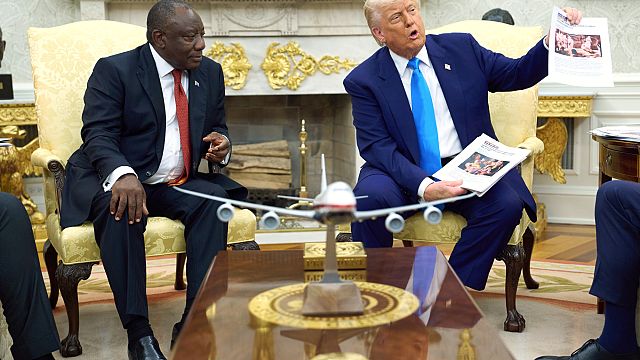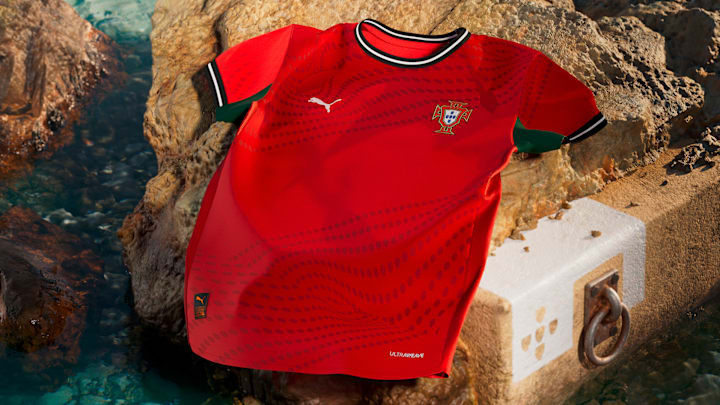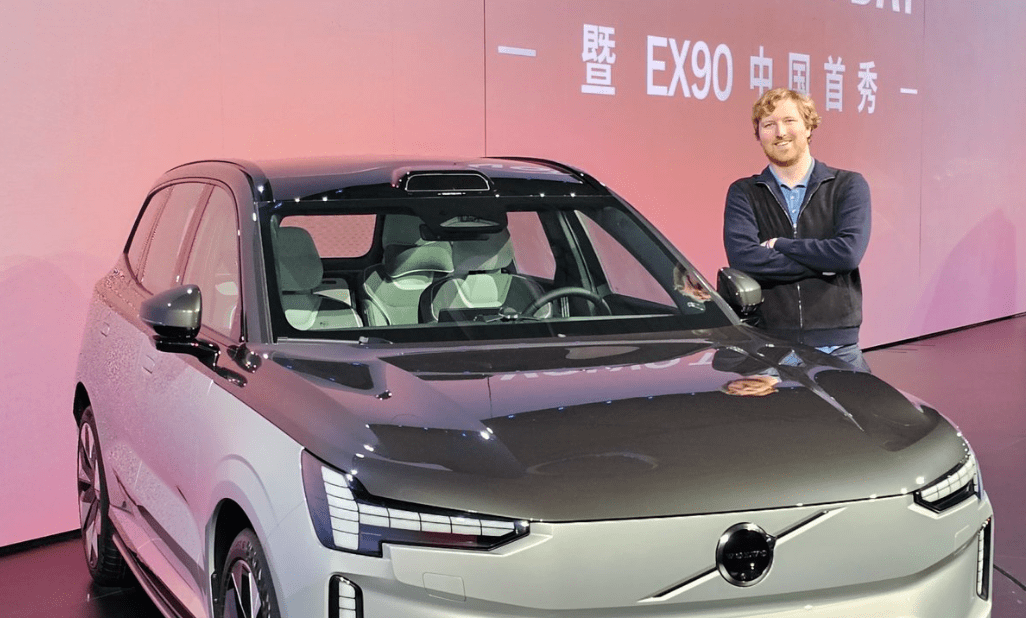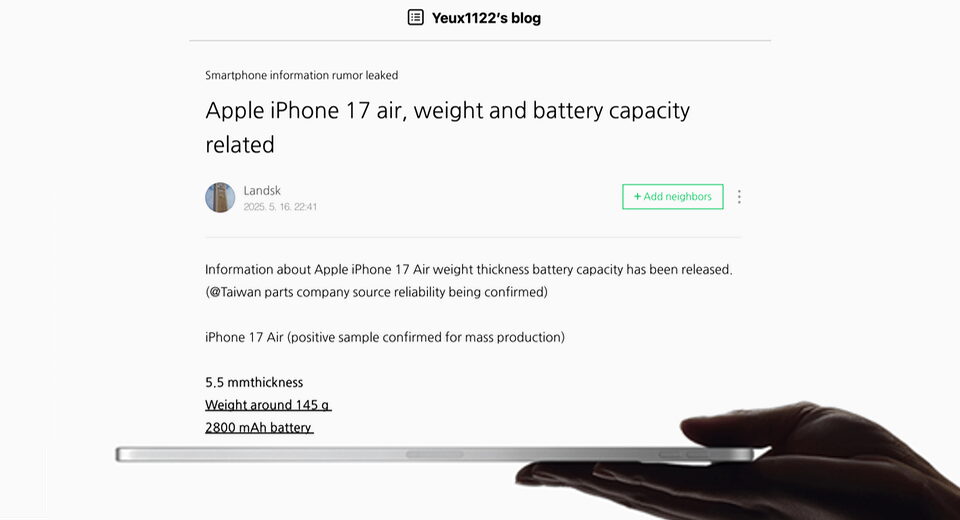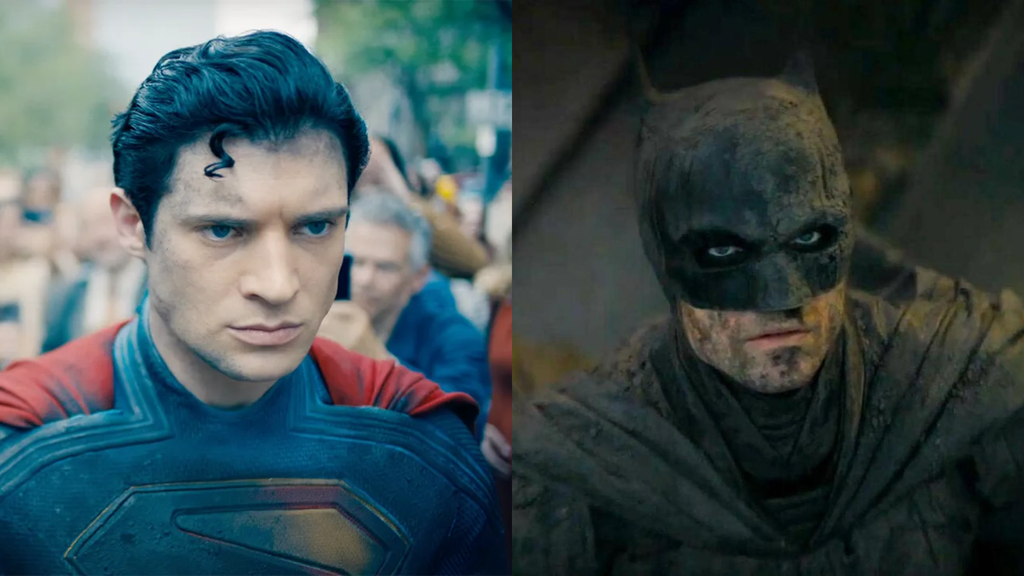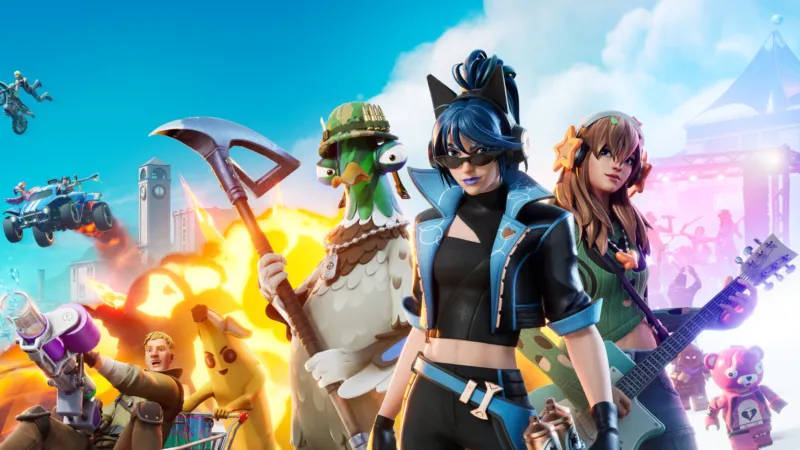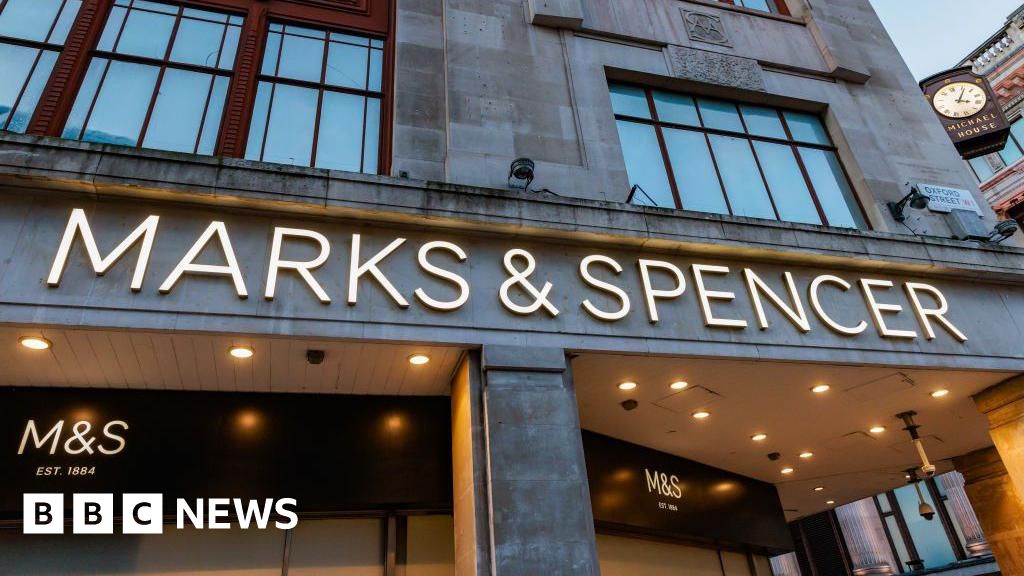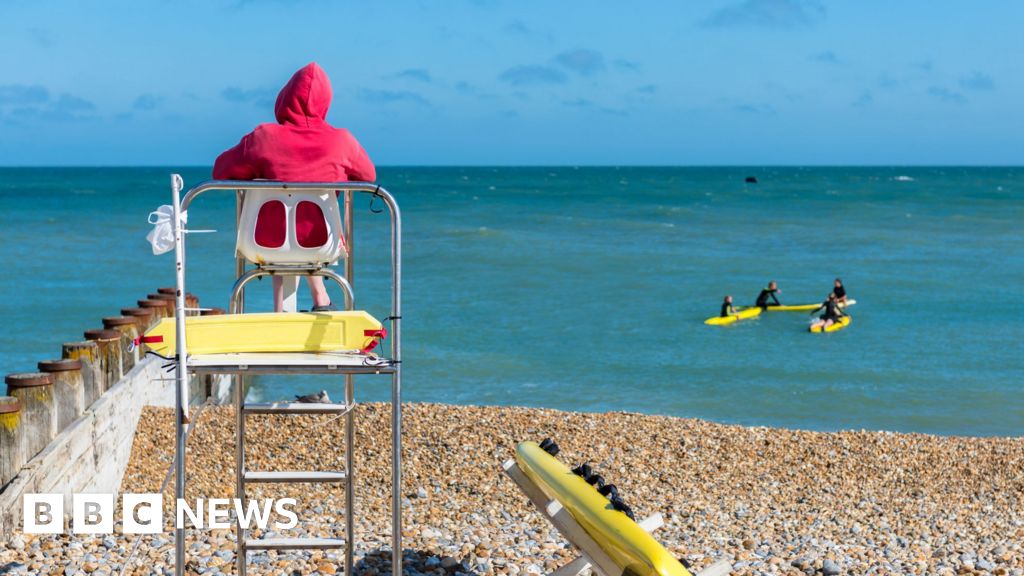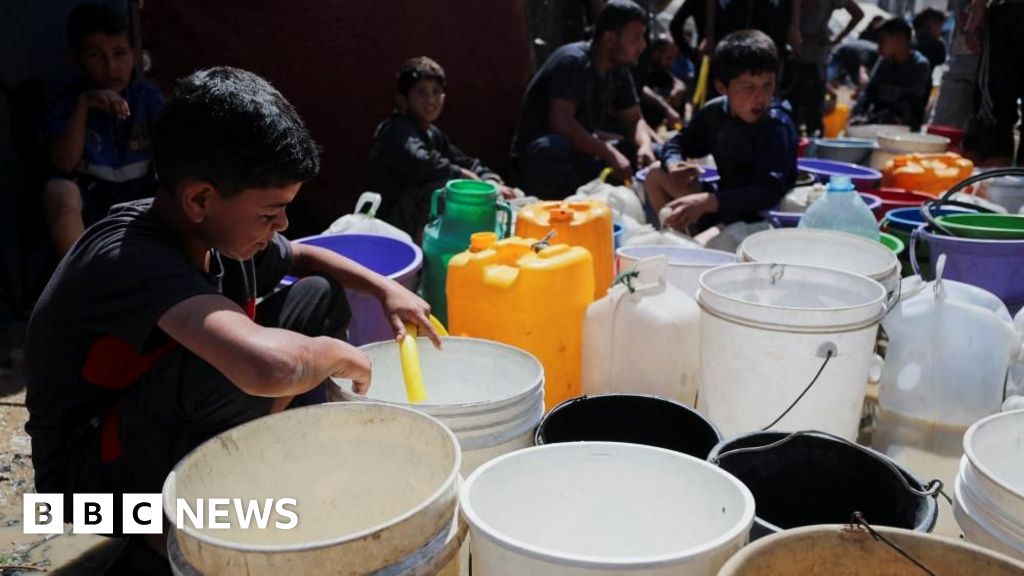Trump Ambushes South African President Ramaphosa With Claims of Genocide: What to Know


A visit by President Cyril Ramaphosa of South Africa to the White House took a contentious turn on Wednesday as President Trump showed him videos intended to back up Mr. Trump’s false claim that there have been mass killings of Afrikaners, a white ethnic minority that once led the nation’s apartheid government.
A televised meeting between the leaders seemed to begin cordially. But then Mr. Trump dimmed the lights in the Oval Office and began showing a prepared video that amplified false claims of mass killings of white South Africans.
There have been killings of white South Africans, but police statistics show they are not killed at a higher rate than other South Africans.
The White House meeting came about a week after the Trump administration welcomed a group of white South Africans to the United States as refugees, after they claimed they were persecuted in their home country.
Here is what to know about White House meeting, the issues that were discussed, and the Afrikaners who have come to the United States as refugees.
What happened in the White House meeting?
The meeting started with pleasantries and discussions about golf and foreign policy, with the leaders at first seeming to glide over the issue of the fringe narrative that Mr. Trump has amplified, claiming that there was a genocide of white South Africans.
The meeting between Mr. Trump and Mr. Cyril Ramaphosa was a stark example of a foreign leader trying to give a reality check to Mr. Trump, who instead amplified fringe theories.
“You’re taking people’s land away, and in many cases those people are being executed,” Trump claimed without evidence.
There have been killings of white South Africans, but police statistics show they are not killed at a higher rate than other South Africans. And while the South African government did pass a law permitting the government to take land without compensation, the process is subject to judicial review.
The videos that Mr. Trump played featured the utterances and slogans of Julius Malema, a firebrand opposition politician. Mr. Malema, the leader of the Economic Freedom Fighters, was expelled from the African National Congress over a decade ago, and the A.N.C. distanced itself years ago from the chant he cites, “Kill the Boer.”
Mr. Trump’s posture became hunched and guarded and he hardly looked at the South African leader as he spoke. He seemed determined to have some kind of confrontation, cutting off Mr. Ramaphosa. “You’re taking people’s land away from them,” Trump said.
The South African delegation, which included two professional golfers who are acquainted with Mr. Trump, tried to explain the situation on the ground in South Africa. He remained unmoved, responding, “Dead white people, dead white farmers.” Mr. Ramaphosa also pushed back on Mr. Trump’s claims of genocide.
The White House delegation included the billionaire Elon Musk, who remained silent during the confrontation. Mr. Trump waved at Mr. Musk, saying, “Elon happens to be from South Africa. This is what Elon wanted.”
Mr. Trump also held up printed out articles he said were on the killings of white people in South Africa. He flipped through them, repeating, “Death, death, death.”
Who are the Afrikaners?
The Afrikaners who arrived in the United States this month are descendants of the European colonizers who settled in South Africa about four centuries ago. They created the system of apartheid in 1948.
Decades after the end of apartheid, some Afrikaners now say they are being denied jobs and have been targeted by violence because of their race.
“No white person in their right mind would stay in this country,” said Jaco van der Merwe, 52, an Afrikaner living in Johannesburg. “I believe South Africa is finished.”
Mr. Trump says that Afrikaners are being persecuted and killed. “It’s a genocide that’s taking place,” he said last week. “It’s a terrible thing that’s taking place, and the farmers are being killed. They happen to be white.”
An independent investigation is the best way to resolve the dispute over the genocide claims, said Vincent Magwenya, a spokesman for Mr. Ramaphosa.
Forty-nine Afrikaners — including parents and children — boarded a flight in Johannesburg to the United States earlier this month, according to a spokesman for South Africa’s airport authority.
The State Department said in March that it had received 8,000 inquiries from people seeking information about the refugee program. It is unclear if the U.S. government will admit more families.
Organizations such as the Amerikaners have been set up to help “support disenfranchised South Africans seeking a new future in the United States.” Some leading Afrikaner activists say they would prefer that Mr. Trump help their cause at home rather than offer refugee status in the United States.
What does land have to do with it?
Much of the discontent among Afrikaners centers on their experience in rural communities and frustration over land ownership.
Many Afrikaners farm to make a living. During apartheid, the government denied Black South Africans the right to own prime agricultural land. That meant that almost all of the country’s large-scale commercial farms were white-owned enterprises. This remains true today.
Although white South Africans make up only 7 percent of the population, they own farmland that covers about half the country. The South African government has tried to address this inequality with various land overhaul programs, including the recent Expropriation Act, which allows the government to acquire privately owned land in the public interest without compensating the owner.
When Mr. Trump signed the executive order announcing his plans to resettle “Afrikaner refugees,” he said it was because the South African government had created a system that “racially disfavored landowners.”
Errol Langton, 48, the patriarch of a South African family of nine that has relocated to Birmingham, Ala., told The New York Times that he had been threatened back home because he was “a white guy and a farmer,” and that his business had suffered financially because of the hatred directed at Afrikaners.
“South Africa is a beautiful country, and it breaks my heart that we’ve left,” he said.
Why are Afrikaners being granted refugee status?
Refugees can often wait years before they are processed and approved to travel to the United States. The Afrikaners who arrived on May 12 had to wait no more than three months.
The president has equated efforts by the South African government to undo racial inequalities with anti-white discrimination.
South African officials have described the administration’s moves as politically motivated. Mr. Trump has criticized the South African government for its ties to Iran and for bringing a genocide case against Israel at the International Court of Justice over the war in Gaza.
“It is most regrettable that it appears that the resettlement of South Africans to the United States under the guise of being ‘refugees’ is entirely politically motivated and designed to question South Africa’s constitutional democracy,” Chrispin Phiri, a spokesman for the South African government, said in a statement.
How will they be resettled in the United States?
Mr. Trump said on Monday that the United States would grant citizenship to the Afrikaners.
The administration plans to rely on a refugee office in the Department of Health and Human Services to assist with resettlement.
According to a memo from the Department of Health and Human Services, the administration plans to help the Afrikaners find “temporary or longer-term housing” and “basic home furnishings, essential household items and cleaning supplies.”
What's Your Reaction?
 Like
0
Like
0
 Dislike
0
Dislike
0
 Love
0
Love
0
 Funny
0
Funny
0
 Angry
0
Angry
0
 Sad
0
Sad
0
 Wow
0
Wow
0
